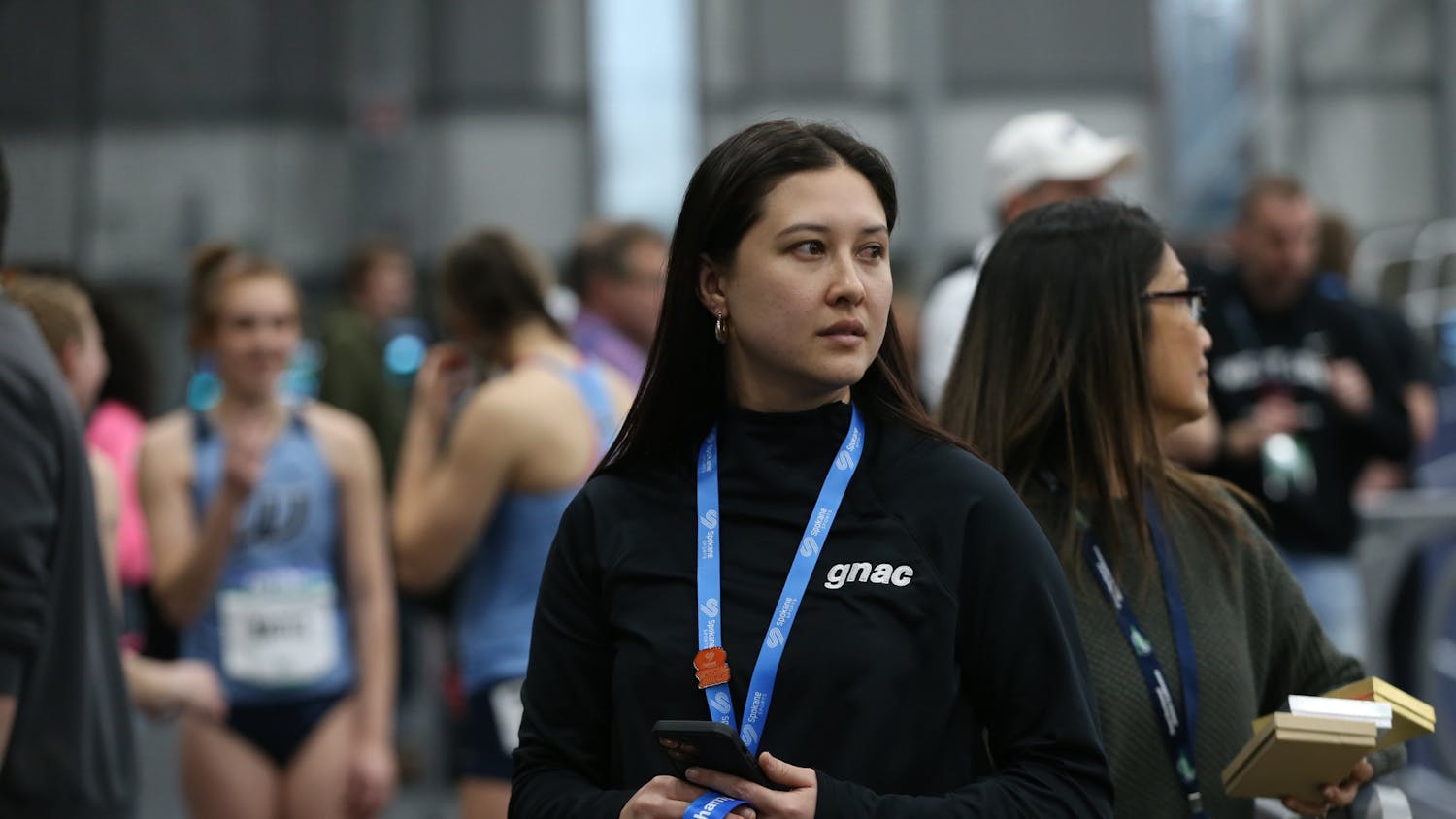The Grand Canal in Venice, Italy on Oct. 27, 2018. // Photo courtesy of Hannah Mietzner By Elizabeth Hall “You do not visit another culture to teach about your own but to learn how much you can take as a person, and to question what you have grown up thinking is the ‘right way’ of doing things,” fourth-year student Megan Phillips said. Ryan Larsen, director of Education Abroad, said only 3% of university students nation-wide study abroad. Western has over 700 traveling per year, which is 4.5% of the student body. If studying abroad sounds intriguing, there are options to explore. Students can choose programs spanning anywhere from a week to an entire year, Larsen said. The most common times to go abroad are during a student’s second year due to the flexibility in students’ schedules, since they are allowed to take GURs and electives more freely, Larsen said. There can occasionally be difficulty in transferring classes after studying abroad. Larsen said it’s extremely important to discuss everything with your adviser. If students don’t get their courses pre-approved by their academic adviser before leaving, it could set back their graduation, Larsen said. However, some students intentionally study abroad to learn a language more thoroughly instead of taking major-required courses. “In this case, while they might get a little behind in their major, they’re certainly not getting behind in life!” Larsen said. Fourth-year student Hannah Mietzner, studied in France for an entire school year. Her goal was to learn a lot of French and get in touch with a different culture. Mietzner studied at the University of Grenoble Alps, the third largest university in France. Professors taught international students on a basis of speaking only French. “I was told if my main goal is to learn French then I shouldn’t go to Paris,” she said. She chose the city of Grenoble because there were many credit opportunities and home stay options. She stayed with a host family to fully immerse herself in the culture. The study abroad application process was long for Mietzner. She had phone consultations with the cultural experiences abroad program and meetings with the study abroad office and French department. To get her visa, she had to fly to San Francisco. The education system in France is very different compared to the U.S., Mietzner said. Instead of letter grades, students are graded on a point system from zero to 20, with 14 and above being an A. This system made it difficult to transfer her grades back because the credits were hard to compare. “I was really upset because I thought everything was not going to be counted,” Mietzner said. Phillips studied abroad during the summer of 2018 in Montreal for four weeks and in Guanajuato, Mexico, this past summer for five weeks. Phillips said she chose Montreal because of the variety in French language. She is majoring in French and Spanish, with a minor in International Studies. “As a world language learner, I felt it was important to learn about a new accent, culture, and history in connection to my major,” she said. In Mexico, some of Phillips’ classes were held in a coin museum in the center of Guanajuato. Larsen said besides traditional study abroad, students can do an exchange program in which they switch places with an international student coming to Western. Another option, the Global Learning program, lets students learn from Western faculty while abroad. Students can study at a university, study center or in the field with internships. Phillips said both of her study abroad trips were Global Learning programs, and her trip to Mexico cost around $5,000 for 12 credits. For her trip to Montreal, the cost estimated $4,500 which included tuition for 8 credits, housing and program fees. There are affordable ways to travel to learn when using federal grants, loans and scholarships, Larsen said. The school has cost-effective programs as well to fit the budget of the student. “I was a low-income, Pell Grant student, and I studied abroad for an entire academic year at a university in Costa Rica,” Larsen said. If they have a major in which they join classes with a group of students, then we encourage that they go abroad for the summer instead because the difficulty in going during the academic year is they will miss too many classes that are required to progress, Larsen said. For Phillips, the application process was straightforward and smooth. She said she filled out a form through the Study Abroad office in January, and got a response in March. From there, she had three sessions of training that lasted eight hours each, but those sessions gave her a chance to bond with classmates. Larsen said the main reason for studying abroad is to give students a chance to meet their academic goals and to simultaneously learn from the community and culture. The experience is meant to be immersive and integrative, helping students build resilience, independence and adaptability. Mietzner recommends the experience. She got to travel to many places in France and Italy, as well as cities like Amsterdam, Geneva, Brussels and Bruges. “One of my favorite days in Grenoble was hiking up the Bastille, an old military fort overlooking the big city, and my friend and I relaxed in the sun and had a picnic at the top,” Mietzner said. On Phillips’ Mexico trip, she got to interact with the Spanish-speaking culture that she had encountered for most of her life. “I wanted to gain an experience that I could share and connect with my friends and their families,” Phillips said. Classes in Montreal were also unique, Phillips said. Her professor gave the students real-life situations to use language vocabulary and grammar. Phillips said this included having them go to pharmacies, ask for directions in a hospital, wander around the city asking people about their bagel preferences, receiving $20 each to go search out food and use their new French bargaining skills in Montreal. Phillips said it was tiring being required to always speak your second language. “And it can be disheartening when you feel like you're not being understood,” she said. Phillips fully immersed herself in the culture during her Guanajuato trip by staying with a host family and solely speaking Spanish. She said her culture class allowed her to take classes in dance, drawing and stamp-making from community members. On the weekend, the culture class went on outings around different cities. Phillips said the cultural norms were difficult to adapt to, but these differences made the experience special for her. Being instantly independent and understanding the French culture were the biggest challenges for Mietzner, as well as having to navigate transportation systems in a different language. “I found the challenge to be enriching,” Mietzner said. Mietzner also struggled with her reading. She said in the French language, it is almost impossible to understand what you’re reading if you don’t understand 95% of the words. “Allow yourself to make mistakes and try new things because if you don’t get out of your comfort zone, you can’t optimize your once in a lifetime experience,” Mietzner said. The value of studying abroad for Phillips was learning to make mistakes as well. Her advice to future students going to a non-English speaking area is to not be afraid to mess up and to push through the struggle until you reach your goal. “This trip taught me to learn to go with the flow, accept what you cannot change and learn from it while you're at it,” Phillips said. The first step in studying abroad is to attend a Western Abroad 101 session. They are only 20 minutes long and inform students on what to do next, Larsen said. “When our students go out into the world to study abroad, we hope they bring a little bit of the world back with them to Bellingham,” Larsen said.





